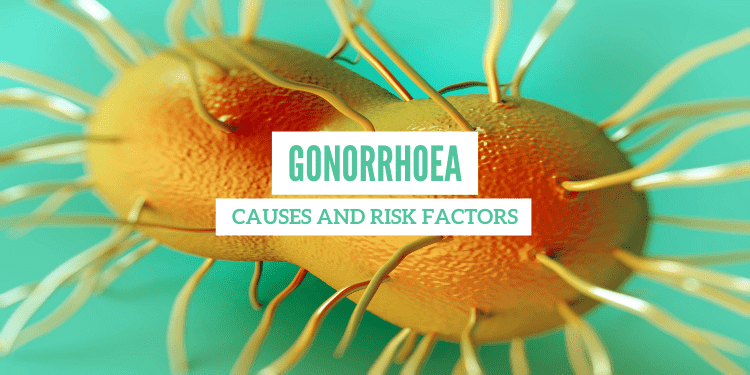- Suite 17, 117A Harley Street London, W1G 6AT
- 020 34751653
- Monday - Friday
9:00 - 18:00 - Saturday - Sunday
10:00 - 14:00

Gonorrhoea is one of the most common STD (sexually transmitted disease), also called sexually transmitted infections (STI). It results from a bacterial infection, which affects both men and women.
Sexually active persons are at risk of contracting gonorrhoea, and every year, thousands of new gonorrhoea cases are reported. When infected with the gonorrhoea-causing bacteria called Neisseria gonorrhoeae, serious health complications may occur. However, gonorrhoea is curable. Gonorrhoea infection affects the throat, genitals, and rectum in men and women.
Some risk factors that increase the risk of gonorrhoea infection include the following.
If you have unprotected vaginal, anal or oral sex with an infected person, you may contract gonorrhoea. If your condom breaks while having sex with someone infected with gonorrhoea, it increases the probability of having gonorrhoea.
Transmission of gonorrhoea is through sexual activity, but an infected male partner may still transmit the bacteria without ejaculating. If you touch any area of your partner's body, harbouring the bacteria, you may get infected.
If the gonorrhoea-causing bacteria enter through a body opening like the penis, mouth, anus or vagina, you may get infected.
If you previously had gonorrhoea and got treatment for it, you can still get infected if exposed to the bacteria again through unprotected sexual intercourse.
Pregnant women with gonorrhoea are at risk of transmitting the infection to their child during delivery. The bacteria can enter the baby's rectum, lungs or eyes, resulting in gonorrhoea infection.
If your immune system is compromised, like having HIV/AIDs, you are at a higher risk of contracting and spreading other STD, including gonorrhoea.
Other factors that can increase the risk of contracting gonorrhoea include age and gender. The moist, delicate and thin nature of the vagina makes it suitable for bacteria growth, and the rate of gonorrhoea infection is higher in young adults and adolescents. Although these factors increase the risk of gonorrhoea, the number of gonorrhoea infections in men is gradually increasing.
Following this testing schedule can reduce the risk of spreading or contracting gonorrhoea.
Gonorrhoea testing requires a urine or swab sample, and it is a simple procedure
Certain behaviours and habits can reduce the risk of spreading or contracting gonorrhoea. They include:
Abstinence from sexual activities is the only way to avoid gonorrhoea infection but, you can reduce the risk of having gonorrhoea by using protective barriers like a condom and dental dam during oral, anal and vagina sex.
You can get different guides online on how to use male and female condoms correctly. Ensure you check the expiration date of the condom, and be careful with how you unroll it, so it remains effective.
Discussing certain issues relating to sex may not be easy, but it is important to have open conversions with your partner about their status and frequency of STD testing. You can ask your partner when he/she had the last STD test and whether the result was positive or not. If your partner has not had an STD test in a while, ensure you both get tested.
If your partner experiences unusual pain during sex or while urinating and has an unusual genital discharge, avoid sexual activities until the person gets tested and receives the right treatment.
If you have gonorrhoea and your doctor has prescribed medication for it, ensure you take the medication even when you stop experiencing symptoms. Taking your complete dose of medication will clear the infection.
Your doctor will suggest avoiding sex during your treatment and about a week after the treatment to prevent re-infection. Make sure you follow your doctor's advice.
If you are sexually active, have more than one sex partner, have a new sex partner or a partner recently diagnosed with gonorrhoea, ensure you get your annual screening for STDs/STIs.
Ensure you engage in safe sex practices to reduce the risk of contracting gonorrhoea. You can get gonorrhoea through sexual contact, but not through sharing toilet seats, bedsheets or clothing with an infected person because the bacteria do not survive outside the human body.
Detecting gonorrhoea early and getting the right treatment prevents further health complications, so visit Sexual Health Clinic for Gonorrhoea testing in London. You can also contact our clinic on 020 34751653 for your private STI testing.
Our Sexual Health Clinic is located on Harley Street in the heart of London.
We are only a 5 minutes walk from Regents Park station, 10 minutes from Great Portland Street and 15 minutes from Oxford Circus.